
Johnny Cash, also known as the “Man in Black,” is a legendary figure in the world of country music. He received numerous prestigious awards throughout his career as a musician. He won 15 Grammy Awards, was inducted into the Rock and Roll Hall of Fame, and received the Kennedy Center Honors in 1996. Cash’s contributions to American music also earned him inductions into several other halls of fame, including the Nashville Songwriters Hall of Fame and the Songwriters Hall of Fame. But before he became a music icon, he served his country in the military. Cash’s military service played a significant role in shaping his character and influencing his music. Although his time in the military was relatively brief, it had a profound impact on his life and career.
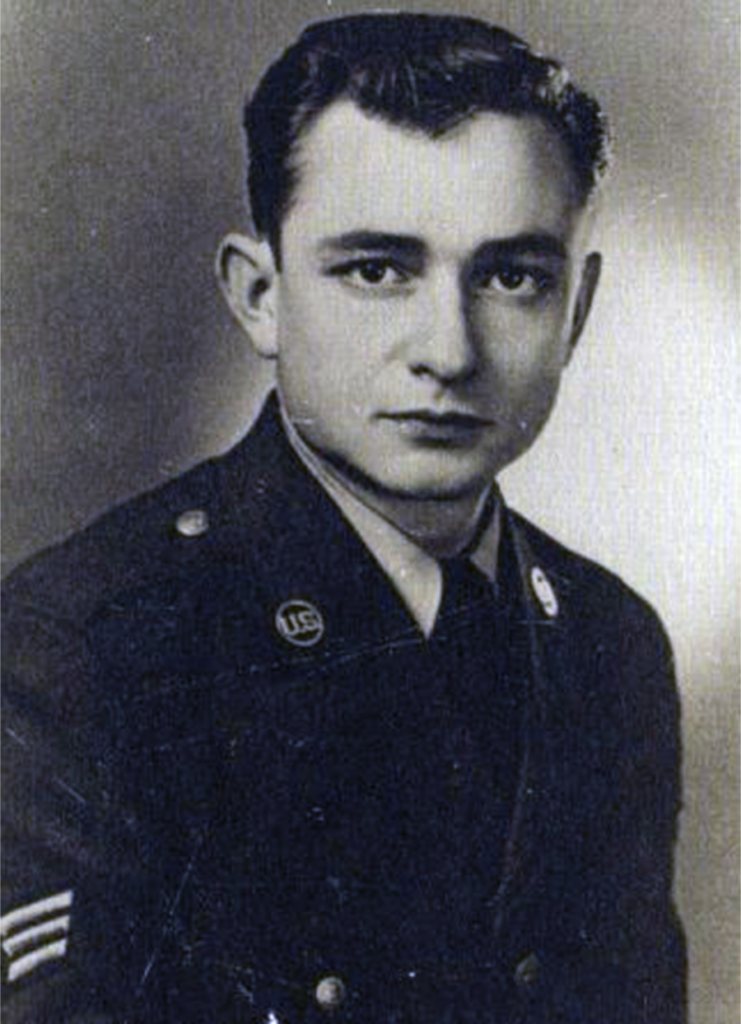
Johnny Cash’s Early Life
The legend who would become Johnny Cash was born in 1932 into the Cash family of poor cotton farmers in Kingsland, Arkansas. Known simply as J.R. growing up, Cash grew up in a government resettlement colony for struggling farmers in Dyess, Arkansas. The Dyess Colony was established in 1934 as a federal agricultural resettlement community under the Works Progress Administration and the Federal Emergency Relief Administration. There were 500 small farmhouses, each with five rooms and an adjacent barn, privy, and chicken coop. Ray and Carrie Cash were among the colonist families recruited from all over Arkansas to the historic Dyess Colony. The Cashes moved to Dyess in March 1935 with their five children, including Roy, 13; Louise, 11; Jack, 5; J. R., 3; and Reba, 1. Two younger children, Joanne and Tommy, were born in Dyess. Today, the Cash home is one of the few houses remaining in the former New Deal-era colony today.

J.R. Cash was three years old when he moved to Dyess and spent all his formative years in the colony. He suffered his first major loss there when his beloved brother Jack died following a sawmill accident in 1944. On a battery-operated radio, J.R. heard local country shows from Memphis, the Carter Family on border radio, and a host of Grand Ole Opry singers. He would later say that many of his early songs, like “Five Feet High and Rising,” were inspired by his time in Dyess.
Johnny Cash: The First American to Hear of Stalin’s Death
Cash graduated high school in 1950 and joined the US Air Force with the Korean War raging. Unable to sign up under an initial, he gave his name as ‘John R. Cash’. He completed basic training at Lackland Air Force Base, Texas, which is the same time he met the young woman that would become his first wife, Vivian Liberto, at a roller rink. He then attended technical training at Brooks Air Force Base, also in Texas, and radio intercept class at Keesler Air Force Base, Mississippi. After completing this training, Cash was assigned to the 12th Radio Squadron Mobile (USAFSS) at Landsberg am Lech, West Germany, where he served for three years as a Morse Intercept Operator. Cash saved up for and bought his first guitar, and became a self-taught guitarist. He formed his first band, the Landsberg Barbarians.
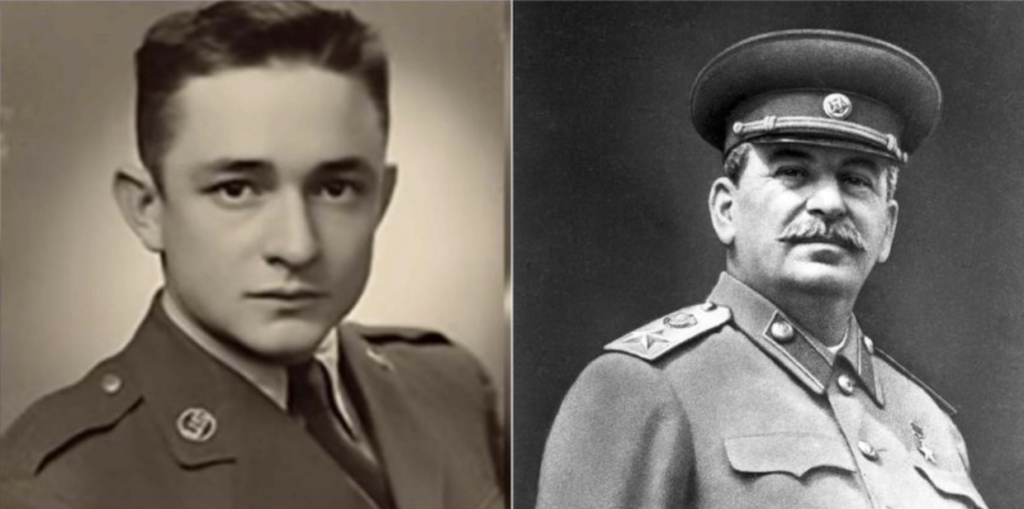
While serving in Germany as a Morse code operator, in March 1953, Cash intercepted a Soviet communique that spoke of the death of Stalin. He is believed to be the first Westerner that heard of his death. A few days short of his fourth complete year in the service, Cash was honorably discharged at the rank of Staff Sergeant.
From Morse Code Operator To Recording Artist
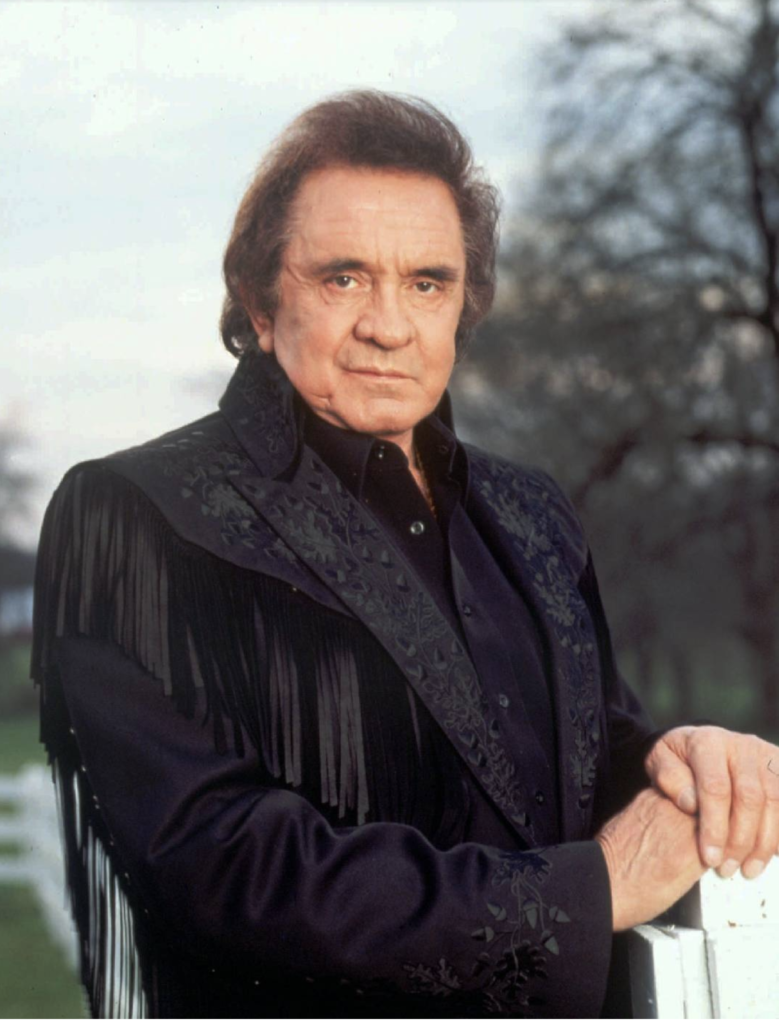
After leaving the service, Cash returned to Texas to marry Vivian Liberto. Later that year, they moved to Memphis, Tennessee. Cash was an appliance salesman for the Home Equipment Company but hated cajoling and manipulating customers into sales. He was also studying to become a disc jockey. Using the stage name Johnny Cash, he auditioned for producer Sam Phillips, first in gospel style, then rockabilly, which won Phillips over. He recorded his first songs at Phillips’ label, Sun Records, in 1955 and met with success on the country hit parade. In the same year, Vivian gave birth to his first daughter, Rosanne, followed by Kathy in 1956, then Cindy and Tara. In 1956 Cash recorded a jam session with Elvis Presley, Carl Perkins, and Jerry Lee Lewis, later released as Million Dollar Quartet. Cash’s first number one record was I Walk the Line, also in 1956. He was the first artist at Sun Records to release an LP in 1957 but left in 1958 to sign a more lucrative deal with Columbia Records. Cash was getting offers to appear in Hollywood movies, so the family left Memphis for Southern California.
Johnny Cash: The Airman in Black
At Columbia, his career went from strength to strength, and he began touring with, among others, the Carter Family, meeting June Carter. His infatuation with her would be one of the elements contributing to the deterioration of his first marriage. Another contributing factor was Cash’s growing dependency on alcohol, amphetamines, and barbiturates to keep level on his punishing tour schedules. However, during this time, he was still writing songs and recording hits, such as Ring of Fire. Cash was prolific, recording over 20 albums for Columbia, including in 1964 Bitter Tears: Ballads of the American Indian, which spotlighted the history of Native Americans and their woes. Cash believed that there was Cherokee blood in his family, though after genealogy research and DNA testing in later decades, this was found to be false. Nevertheless, Cash was emphatic in his advocacy for Native American causes. Cash immersed himself in the issues surrounding the native movement using the penetrating songwriting of little-known folksinger Peter La Farge. His motivation came from his early life growing up with native people in Arkansas. While Cash’s own family benefited from the New Deal, Cash saw the dire contrast between what his family was able to experience and that of the native people around him, who were living in near squalor and destitution. In 1964, Cash made the then-controversial career move to release Bitter Tears: Ballads of the American Indian, an entire album dedicated to advocating for the rights of Native Americans. It included the now-famous single “The Ballad of Ira Hayes,” which chronicled the story of the Pima Indian who helped raise the flag on Iwo Jima during World War II.
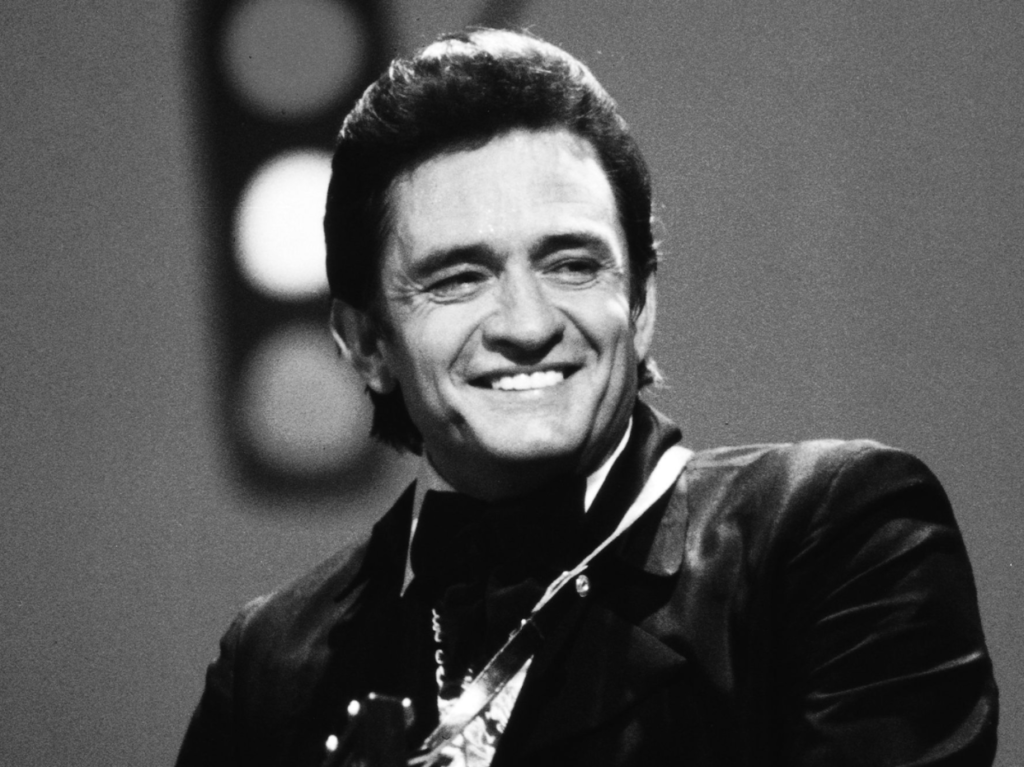
In 1966, frustrated with Cash’s continued alcohol and drug problems, the strain of his touring schedule on their relationship, his repeated adultery, and his obsession with June Carter, Johnny Cash’s wife Vivian filed for divorce. Cash took this in his stride, moving away from his four daughters to Tennessee. He proposed to June Carter over 30 times before she agreed to become his second wife in 1968. In 1969, Cash was approached by ABC, and The Johnny Cash Show was the result. It ran between June 1969 and March 1971, and Cash hosted many guests, including Louis Armstrong, Neil Young, Roy Orbison, Joni Mitchell, Bob Dylan, Neil Diamond, Ray Charles, and more. Cash was invited to perform at the White House by Richard Nixon in 1970, although he rejected Nixon’s request to play songs that denigrated African-Americans and hippies. He instead used the opportunity to play protest songs and The Ballad of Ira Hayes, about a Native American Marine who raised the flag at Iwo Jima. In 1975, he wrote the first of two autobiographies, The Man in Black.
Johnny Cash, The Anti-War Activist
Johnny Cash was known for his outspoken opposition to war and his activism for peace. Johnny and June Cash went to Vietnam in 1971 to perform for the troops. As a veteran himself, and an American patriot, he felt it was his duty to perform a series of concerts for those who were serving their country. Black and white, rich and poor, officer and draftee, rural and urban — Vietnam soldiers loved Johnny Cash and his music. For them, Cash stood for hard work, tough times, resilience, and honesty. After that tour, he became a fervent anti-war protester.
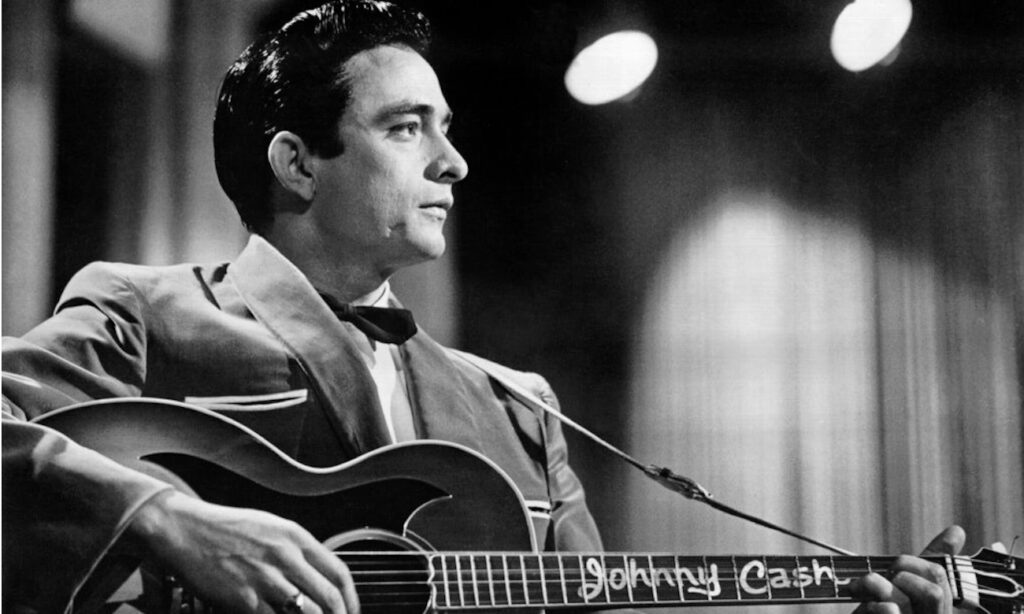
He sang in “Man in Black”: “I wear the black in mourning for the lives that could have been. Each week we lose a hundred fine young men.”
Cash wrote another anti-war song called “Drive On” after sending a letter to President George H.W. Bush protesting the first Iraq War. “Drive on—it don’t mean nothing—is an expression they used a lot in Vietnam when I was there,” Cash would explain. He believed in non-violence and wanted to keep his soldier brethren from going and dying in another war. Cash once said, “The only thing good to come out of a war is a song.”
Johnny Cash’s Legacy
Despite his incredible success in the 60s and 70s, Cash was unable to make as much of an impact in the 80s. He formed The Highwaymen, a supergroup with Kris Kristofferson, Waylon Jennings, and Willie Nelson that released three hit albums in 1985, 1990, and 1995. He was again struggling with addiction after a relapse related to an injury. In 1985, Cash portrayed the Abolitionist John Brown in an ABC TV miniseries called North & South. In 1986 he published a novel, The Man in White, about the Biblical figure Saul and his conversion to Christianity. Dropped by Columbia Records, he spent four years on a contract with Mercury that was unremarkable in its output. While he was no longer abiding by such a hectic tour schedule, Cash enjoyed his projects in the 90s, releasing a well-received album American Recordings in 1994 that won him his 9th Grammy. He appeared with his wife June on several episodes of Dr. Quinn, Medicine Woman, and lent his distinctive voice to an episode of The Simpsons. Working with Tom Petty and the Heartbreakers, he picked up another Grammy in 1997 for the album Unchained. That year he also released his second autobiography, Cash: The Autobiography. Unfortunately, in 1997 Cash was also diagnosed with a debilitating disease, initially thought to be Parkinson’s, later found to be autonomic neuropathy associated with diabetes. In the final stage of his career Cash was recording steadily, releasing two more albums that included a number of cover songs, notably Nine Inch Nails’ ‘Hurt’. While Trent Reznor of NIN was initially skeptical, the song being intensely personal to him, he was so impressed with the rendition that he ceded the song to Cash. The video for Cash’s Hurt netted him his 12th and penultimate Grammy in 2003. Sadly, in May of that year June Carter Cash passed away. After her death, in observance of her wishes, Cash continued to record at a devoted pace, finishing 60 songs in 4 months. While hospitalized at Baptist Hospital in Nashville, Tennessee, Johnny Cash passed away in September 2003, at the age of 71. He was buried next to his beloved wife in Hendersonville Memory Gardens.
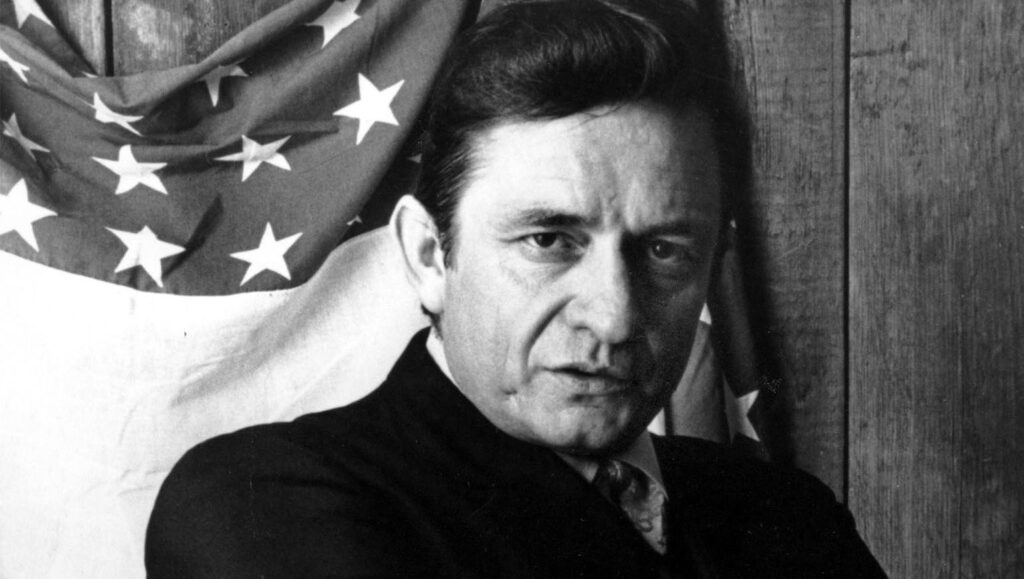
Johnny Cash’s tireless advocacy, humility, and incredible musical legacy make him one of Arkansas’ most loved sons. His acceptance into the Nashville Songwriters Hall of Fame (1977), the Country Music Hall of Fame (1980), the Rock and Roll Hall of Fame (1992), GMA’s Gospel Music Hall of Fame (2010). and the Memphis Music Hall of Fame (2013) speaks to his versatility and appeal as a musician. Together We Served honors his incredible achievements as an entertainer as well as his humble service as a member of the Armed Forces.


Read About Other Celebrities Who Served
If you enjoyed learning about Johnny Cash’s military service, we invite you to read about other celebrities who served on our blog. You will also find military book reviews, veterans’ service reflections, famous military units and more on the TogetherWeServed.com blog. If you are a veteran, find your military buddies, view historic boot camp photos, build a printable military service plaque, and more on TogetherWeServed.com today.
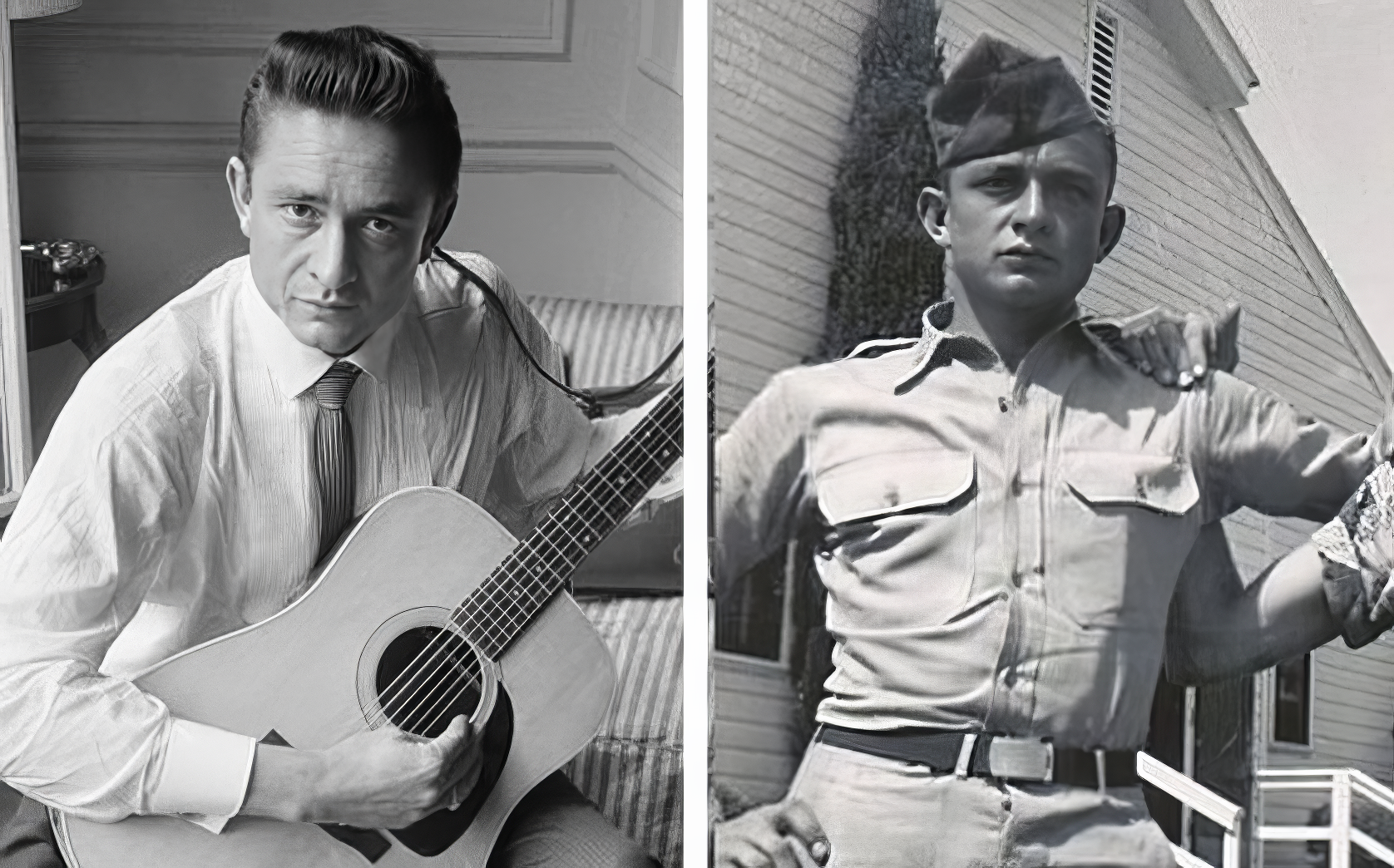
Johnny Cash was a true American Patriot who just happened to be one of the greatest musicians ever.
I still love his music listen to his CD’s.
One error of note: Cash was not a self-taught guitarist. He learned to play from Orville Wayne Rigdon, a fellow soldier and “Barbarian” while stationed in Landsberg.
Thank you
I feel honored to have been trained at the same bases as this man. Lackland AFB and Keesler AFB. He was a great musician.